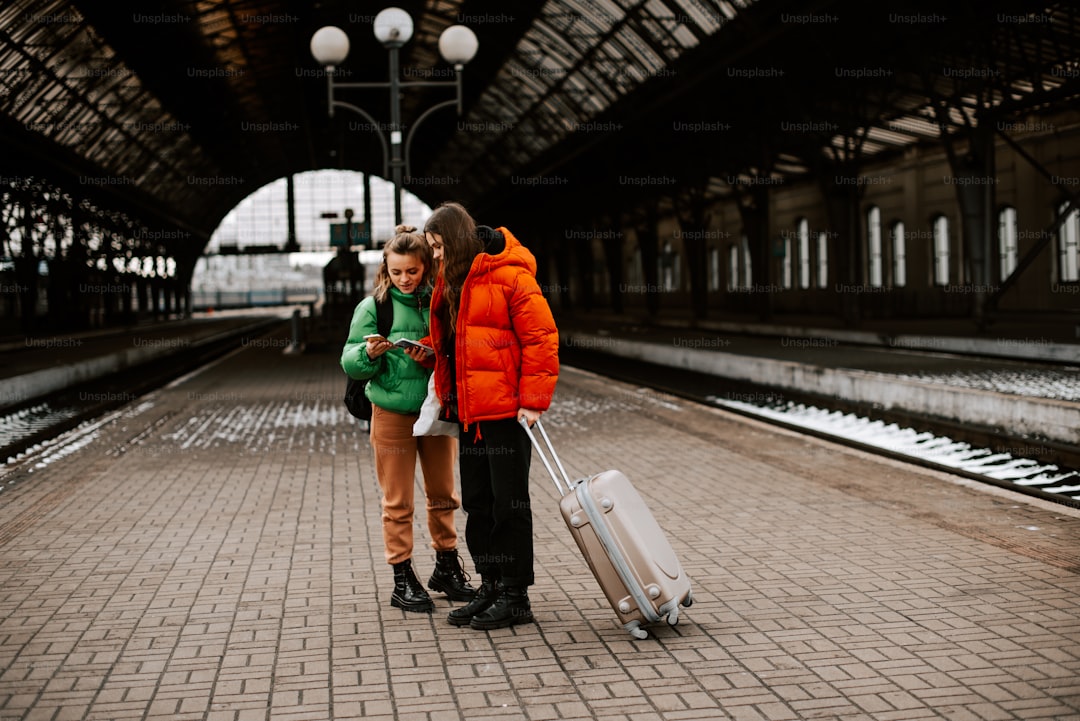How To Start A Nomad Lifestyle With Confidence

Introduction
The idea of living a location‑independent life has moved from a niche fantasy to a realistic option for many people. The promise of waking up in a new city, working from a café with a view of the ocean, and designing a schedule that matches your personal rhythm is undeniably attractive. Yet the transition from a traditional, stationary lifestyle to a nomadic one can feel overwhelming. Fear of the unknown, concerns about finances, and worries about staying productive are common obstacles.
This guide breaks down the process into clear, actionable steps that will help you move forward with confidence. By the end, you will have a solid foundation for planning, budgeting, packing, and thriving on the road.
Clarify Your Why
Before you buy a plane ticket or start selling your furniture, spend time defining the purpose behind your desire to become a nomad. A strong, personal “why” acts as an anchor when challenges arise.
- Freedom – Do you crave the ability to choose where you live each month?
- Adventure – Are you motivated by exploring new cultures and landscapes?
- Career flexibility – Does remote work open doors you couldn’t reach before?
- Personal growth – Are you looking to develop resilience and self‑reliance?
Write down your top three motivations and refer to them whenever you feel doubt. This simple exercise will keep your decisions aligned with your core values.
Assess Your Current Situation
Financial Snapshot
Create a realistic picture of your finances. Include income sources, monthly expenses, debt obligations, and emergency savings.
| Category | Amount (USD) |
|---|---|
| Monthly net income | |
| Fixed expenses (rent, utilities, subscriptions) | |
| Variable expenses (food, transport, entertainment) | |
| Debt payments | |
| Emergency fund (3–6 months of expenses) | |
| Travel budget (flights, visas, insurance) |
If your emergency fund is not yet at the recommended level, consider delaying the move until you have a safety net. A common rule of thumb for nomads is to have at least three months of living expenses set aside, plus an additional buffer for unexpected costs such as flight cancellations or medical emergencies.
Skills and Income Streams
Identify which of your current skills can be offered remotely. Typical remote‑friendly professions include:
- Software development
- Graphic design
- Content writing and editing
- Digital marketing
- Online tutoring or teaching
- Consulting
If you lack a remote income source, start building one now. Freelance platforms, remote‑friendly job boards, and networking within your industry are good places to begin. Aim to secure at least one reliable income stream before you leave your home base.
Lifestyle Compatibility
Consider the aspects of your current routine that you may need to adjust:
- Pet ownership – Can you bring your pet, arrange pet‑sitting, or relocate with them?
- Family commitments – Are there dependent family members who need your presence?
- Health needs – Do you have ongoing medical treatments that require specific facilities?
Addressing these factors early prevents disruptions later on.
Build a Minimalist Mindset
A nomadic lifestyle thrives on simplicity. The less you own, the easier it is to move. Adopt a minimalist approach by gradually reducing possessions that are not essential to your daily life.
- Clothing – Choose versatile, layerable pieces. A capsule wardrobe of 10–12 items can cover most climates.
- Tech gear – A reliable laptop, smartphone, and a universal power adapter are typically sufficient.
- Personal items – Keep only items that hold significant emotional or practical value.
Sell, donate, or store items you decide to let go. The process of decluttering not only lightens your load but also gives you a clearer mental space for the adventure ahead.
Choose Your First Destination
Selecting the right launch point can set the tone for the rest of your journey. Take into account:
- Cost of living – Look for locations where your budget stretches further. Websites like Numbeo and Expatistan provide comparative data.
- Internet reliability – Research average download speeds and coworking space availability.
- Visa policies – Some countries offer digital nomad visas that allow stays of 6–12 months. Others have visa‑free entry for short periods.
- Community – A vibrant expat or nomad community can ease the transition and provide networking opportunities.
A popular starter destination for many first‑time nomads is Portugal’s Algarve region. It offers a relatively low cost of living, reliable internet, English‑friendly locals, and a growing community of remote workers.
Secure Documentation
Passport
Ensure your passport is valid for at least six months beyond the date you plan to return home. Renew it now if it is close to expiration; processing times can be unpredictable.
Visas
Research visa requirements for your chosen country well in advance. Some key options include:
- Tourist visa – Typically allows stays of 30–90 days. May be extendable in some locations.
- Digital nomad visa – Specifically designed for remote workers, often permitting 6–12 months of residence.
- Work‑holiday visa – Available to citizens of certain countries, combining travel and limited work rights.
Keep digital copies of all visa applications, approval letters, and any supporting documents. Print a hard copy as a backup.
Travel Insurance
Invest in a comprehensive travel insurance plan that covers:
- Medical emergencies and evacuation
- Trip cancellations and interruptions
- Lost or stolen belongings
Read the fine print to verify coverage limits and exclusions. Many insurers offer plans tailored for long‑term travelers.
Health Documentation
If you require regular medication, obtain a prescription that covers your travel period and a doctor’s letter describing the medication. Some countries have strict import regulations, so check local customs rules before you travel.
Set Up a Remote Work Infrastructure
Reliable Internet Solutions
Even in cities with generally good connectivity, you may encounter occasional outages. Prepare alternatives:
- Mobile hotspot – Purchase a local SIM card with a generous data plan.
- Coworking spaces – Many offer high‑speed internet, ergonomic chairs, and quiet zones.
- Cafés with Wi‑Fi – Scout out several options in advance; keep a list on your phone.
Test your equipment before you leave. Install any necessary drivers or software updates, and consider using a VPN to secure your connection on public networks.
Productivity Tools
Adopt a suite of digital tools that help you stay organized while moving between time zones:
- Project management – Asana, Trello, or ClickUp
- Time tracking – Toggl or Clockify
- Communication – Slack, Microsoft Teams, or Discord
- File storage – Google Drive, Dropbox, or OneDrive
Set up automatic backups to protect your work against hardware failure or loss.
Banking and Payments
Maintain a banking system that works internationally:
- Multi‑currency accounts – Wise (formerly TransferWise) or Revolut allow you to hold and exchange funds with low fees.
- Credit cards with no foreign transaction fees – Essential for everyday purchases.
- PayPal or Stripe – Useful for receiving freelance payments.
Notify your bank of your travel plans to avoid temporary freezes on your cards.
Create a Practical Packing List
A well‑thought‑out packing list prevents you from overpacking or forgetting essentials. Below is a sample list divided into categories.
Tech Gear
- Laptop + charger
- Portable SSD or external hard drive
- Smartphone + charger
- Universal travel adapter
- Noise‑cancelling headphones
- USB‑C hub or multi‑port adapter
- Power bank (10,000 mAh or higher)
Essentials
- Passport, visas, travel insurance documents (digital and paper copies)
- Wallet with credit cards, debit card, and a small amount of cash in the local currency
- Reusable water bottle
- Basic first‑aid kit (band‑aids, pain relievers, antiseptic wipes)
Clothing
- 2–3 lightweight shirts
- 1–2 long‑sleeve shirts for cooler evenings
- 1 pair of versatile pants (e.g., travel jeans or chinos)
- 1 pair of shorts or leggings
- 1 lightweight jacket or windbreaker
- Underwear and socks for one week (launder as needed)
- Comfortable walking shoes
- Flip‑flops or sandals
Personal Care
- Toothbrush, toothpaste, floss
- Travel‑size shampoo and body wash (or solid alternatives)
- Razor and shaving cream
- Small pack of laundry detergent (for hand washing)
Miscellaneous
- Travel journal or notebook
- Pen and a small set of markers
- Compact daypack for daily excursions
- Lockable luggage or backpack
Pack items in a soft‑sided backpack or a wheeled suitcase that meets most airline size restrictions. Keep your most valuable items (passport, electronics, wallet) in a carry‑on that stays with you at all times.
Plan Your First Month
Flight and Accommodation
Book a flexible ticket that allows date changes without heavy penalties. Many airlines now offer “open‑jaw” tickets that let you fly into one city and out of another, which can be useful for a round‑trip loop.
For accommodation, start with short‑term options that give you flexibility to assess the location:
- Airbnb or Vrbo – Choose listings with a “self‑check‑in” option.
- Hostels – Many offer private rooms and reliable Wi‑Fi.
- Serviced apartments – Provide kitchen facilities and a more “home‑like” feel.
Reserve at least the first two weeks in advance. After you have settled, you can decide whether to stay longer or move on.
Budget Allocation
Break down your projected expenses for the first month:
- Housing – 30–40 % of budget
- Food – 20–30 % (mix of groceries and occasional meals out)
- Transportation – 10 % (local public transit, occasional rideshares)
- Internet and coworking – 5–10 %
- Leisure and experiences – 10 %
- Contingency – 5 %
Adjust percentages based on the cost of living in your destination. Keep a running spreadsheet to track actual spending versus estimates.
Routine Development
Establish a daily routine that balances work, exploration, and self‑care:
- Morning – Light exercise (yoga, jog), breakfast, and a focused work block.
- Midday – Lunch break, short walk, and a second work session.
- Afternoon – Finish work, then explore local attractions or attend community events.
- Evening – Cook dinner, journal, and unwind.
Having a structure reduces the feeling of drift and helps you stay productive across time zones.
Build Community and Support
Loneliness can creep in when you are far from familiar faces. Proactively create a network:
- Coworking spaces – Attend “coffee chats” or networking events.
- Meetup groups – Search for “digital nomad”, “expat”, or hobby‑specific meetups in the city.
- Online forums – Reddit’s r/digitalnomad, Nomad List, and Facebook groups are great for advice and camaraderie.
- Language exchanges – Platforms like Tandem or local conversation clubs help you integrate and improve language skills.
Participating in community activities not only provides social interaction but can also lead to professional collaborations.
Manage Health and Well‑Being
Physical Health
- Exercise – Use local gyms, outdoor parks, or body‑weight routines you can do in a hotel room.
- Nutrition – Balance eating out with cooking simple meals. Buying fresh produce from markets is often cheaper and healthier.
- Sleep – Stick to a consistent bedtime, even when the sun sets at different times.
Mental Health
- Stay connected – Schedule regular video calls with family and friends back home.
- Mindfulness – Practice meditation or breathing exercises to reduce stress.
- Professional support – If you need therapy, consider online platforms such as BetterHelp or Talkspace, which operate internationally.
Safety
- Local laws and customs – Familiarize yourself with basic cultural etiquette to avoid misunderstandings.
- Secure belongings – Use a lock on your backpack, store valuables in a hotel safe, and be cautious in crowded areas.
- Emergency contacts – Save the local emergency number (e.g., 112 in many European countries) and the address of your country’s embassy or consulate.
Keep Your Finances Healthy on the Road
Income Management
- Invoice promptly – Use professional invoicing tools like FreshBooks or Wave to maintain cash flow.
- Currency conversion – Transfer money through low‑fee services such as Wise to avoid costly bank fees.
Expense Tracking
- Digital tools – Apps like Mint, YNAB, or PocketGuard help you categorize spending in real time.
- Monthly review – At the end of each month, compare actual expenses to your budget and adjust for the next month.
Tax Considerations
Nomadic living can affect tax residency. While many countries consider you a tax resident if you spend more than 183 days there, rules vary widely. Consult a tax professional familiar with international remote work to ensure compliance and avoid surprises.
Adapt and Iterate
Your first destination is a learning experience, not a final verdict. Periodically assess whether your current location meets your expectations in terms of cost, community, internet reliability, and overall happiness. Use a simple evaluation matrix:
| Factor | Rating (1‑5) | Comments |
|---|---|---|
| Cost of living | ||
| Internet speed | ||
| Social connections | ||
| Safety | ||
| Cultural fit |
If the overall score falls below a personal threshold, consider moving to a new city that aligns better with your goals. The flexibility of a nomadic lifestyle is its greatest strength—use it to fine‑tune your experience.
Long‑Term Planning
Visa Strategies
If you intend to stay abroad for an extended period, research multi‑country visa options such as the Schengen Area 90/180‑day rule, the ASEAN Long‑Term Visa, or the Remote Work Visas offered by countries like Estonia, Barbados, and Costa Rica. Planning ahead prevents accidental overstays.
Home Base vs. Permanent Nomad
Some nomads eventually settle on a “home base” where they store belongings, maintain a mailing address, and return periodically. Evaluate whether having a fixed point of return would improve your sense of stability.
Career Growth
- Skill development – Use travel time to learn new languages, acquire certifications, or explore side projects.
- Networking – Attend industry conferences or local meetups that can lead to new opportunities.
- Passive income – Explore options such as affiliate marketing, e‑books, or online courses that generate revenue with minimal ongoing effort.
Building a diversified income portfolio reduces reliance on a single client or platform and enhances long‑term financial security.
Common Challenges and How to Overcome Them
Internet Outages
- Backup plan – Keep a local SIM with data, and know the nearest coworking space with reliable Wi‑Fi.
- Offline work – Have tasks that can be completed without internet (writing drafts, editing, brainstorming).
Loneliness
- Routine social activities – Schedule weekly meetups or virtual game nights.
- Volunteer – Contribute to local NGOs or community projects to meet people while giving back.
Time‑Zone Misalignment
- Set core hours – Agree with clients on a small window of overlapping time for meetings.
- Use scheduling tools – Calendly or Google Calendar can automatically display time zones for participants.
Burnout
- Boundaries – Define clear work start and end times.
- Mini‑breaks – Use the Pomodoro technique (25 minutes work, 5 minutes break) to maintain focus.
- Vacation days – Even a short “digital detox” week can reset energy levels.
Resources for Ongoing Learning
- Books – “The 4‑Hour Workweek” by Tim Ferriss, “Remote: Office Not Required” by Jason Fried and David Heinemeier Hansson.
- Podcasts – “The Remote Show”, “Zero To Travel”, “Nomadtopia”.
- Websites – Nomad List (city rankings), Remote OK (job board), The Remote Life (community and courses).
- Tools – Notion (knowledge base), Airtable (project tracking), Zapier (automation).
Continuously updating your knowledge base ensures you stay ahead of trends in remote work, travel regulations, and digital nomad culture.
Final Thoughts
Starting a nomad lifestyle with confidence is less about a single heroic decision and more about a series of deliberate, well‑planned actions. By clarifying your motivations, securing reliable income, minimizing possessions, and preparing both documentation and practical logistics, you lay a sturdy foundation for a life on the move.
Remember that uncertainty is part of the adventure; the skills you develop—adaptability, problem‑solving, cultural awareness—will serve you long after you’ve explored the first city on your itinerary. Embrace the journey, stay curious, and let each new destination deepen your sense of freedom and purpose.
Random Posts

Ultimate Guide to the Best Digital Nomad Destinations and Visa Strategies
Discover the top digital nomad hotspots, compare living costs, internet speeds, safety, and community vibes, and master visa hacks to work legally and comfortably from any corner of the globe.
1 month ago

Ultimate Guide to the Best Digital Nomad Destinations and Smart Flight Strategies
Discover top digital nomad hotspots with reliable WiFi, affordable living, and insider flight hacks to save money and time, so you can work from paradise without breaking the budget.
1 month ago

Minimalist Nomad Living Sustainable Travel with Light Packing
Travel light, think small: Minimalist nomad living frees mind, cuts waste and costs, and turns every journey into a sustainable adventure.
3 weeks ago

Curated Collections of Apps and Media for the Travel‑First Lifestyle
Discover the essential apps, books, podcasts and tools that empower digital nomads and remote workers to stay connected, manage money, find safe stays, stay healthy and productive while traveling.
1 day ago

Nomad Lifestyle Secrets Top Spots with Low Cost of Living and Easy Entry
Discover the best nomad hotspots where affordable living meets hassle-free visas, so you can work from sun-lit cafés or mountain lofts without breaking the bank or getting stuck in red tape
3 days ago
Latest Posts

Essential Software Every Remote Professional Should Use
Master remote work with essential tools: instant messaging like Slack, high definition video calls such as Zoom, and asynchronous voice apps. Streamline communication, stay connected and boost productivity.
1 day ago

Mastering Remote Work Productivity for Digital Nomads and Freelancers
Learn proven habits, tools, and tactics that help digital nomads and freelancers stay focused, deliver quality work, and maintain a sustainable lifestyle while traveling the world.
1 day ago

Tech‑Friendly European Towns Perfect for Remote Living
Discover Europe’s best small towns where fast internet, affordable living and vibrant tech communities let you work remotely while soaking up historic charm, lakeside views or mountain air.
1 day ago